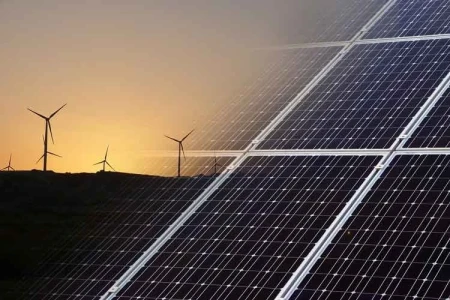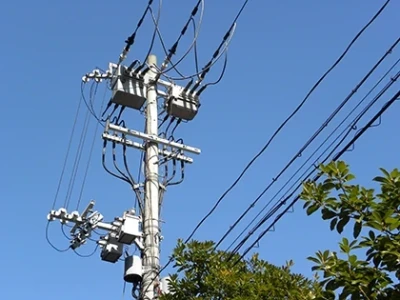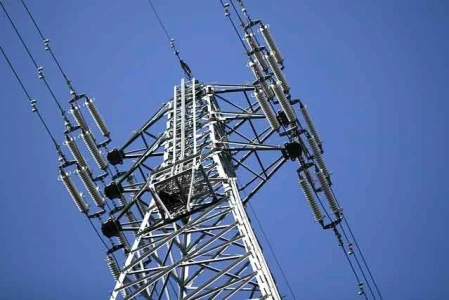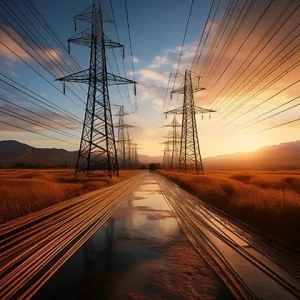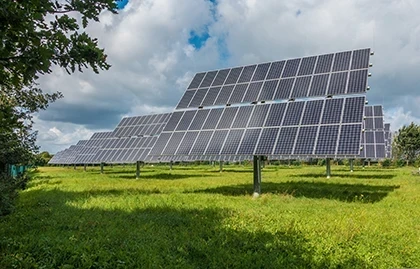Funding Freeze Clouds Solar For All's Future

The "Solar For All" program, which was designed to bring affordable solar energy to low-income communities across the United States, is now facing significant challenges after a pause in funding imposed by the Trump administration. This program, which was part of the Biden administration’s Inflation Reduction Act (IRA), had initially been expected to distribute $7 billion in grants and loans to support solar installations in underserved areas. However, the recent funding freeze has left the future of this ambitious initiative uncertain, casting a shadow over efforts to expand clean energy access and address climate change.
The Solar For All program was hailed as a critical tool in making solar power more accessible to disadvantaged households, particularly those in communities that have been historically excluded from the benefits of renewable energy. By providing financial support for the installation of solar panels and other clean energy technologies, the program sought to reduce energy costs for low-income families while also contributing to the nation’s climate goals. The program’s funding was meant to help install solar energy systems in homes, schools, and community centers across the country, targeting both urban and rural areas where energy bills can be a significant burden.
GRID Alternatives, a nonprofit organization that partners with underserved communities to provide solar energy solutions, was one of the key recipients of the program’s funding. The organization had been awarded a $357 million grant to deploy solar energy systems in 29 states, with a focus on helping low-income families and communities of color. However, in the wake of the funding freeze, GRID Alternatives, along with other program participants, has been left in limbo, unsure whether they will be able to proceed with their planned projects. The pause in funding has led to confusion and concern, particularly among nonprofits that have already incurred expenses in anticipation of receiving federal funds.
The Trump administration’s decision to freeze funding for the Solar For All program is part of a broader effort to roll back climate-related initiatives and prioritize fossil fuel development. Under the executive orders issued by former President Trump, the federal government has been directed to halt funding for certain programs that support clean energy, including the Solar For All program. This move is consistent with Trump’s “Unleashing American Energy” initiative, which aimed to prioritize the extraction and use of oil, gas, and coal resources.
The Office of Management and Budget (OMB), which oversees the allocation of federal funds, issued a memo in response to the freeze, directing agencies to suspend financial assistance for projects related to renewable energy, energy efficiency, and climate change mitigation. This directive has left organizations that were counting on the Solar For All funding in a precarious position, as they face an uncertain future for their projects.
The funding freeze has also sparked legal battles, with lawsuits filed by nonprofits, states, and other stakeholders who argue that the suspension of funds is illegal and unconstitutional. Legal experts believe these lawsuits may have merit, pointing to previous court rulings that have found similar actions by the Trump administration to be unlawful. In particular, lawsuits are challenging the legality of suspending funds that were already allocated to specific programs by Congress. The legal challenges could ultimately determine the fate of the Solar For All program and whether it will be able to move forward as originally planned.
In addition to legal challenges, the funding freeze has raised concerns about the broader impact on efforts to address climate change and reduce energy inequality. The Solar For All program was seen as a key component of the United States’ strategy to achieve its climate goals, as it aimed to reduce emissions and expand access to renewable energy in underserved communities. The pause in funding threatens to derail these efforts, leaving many low-income families without the financial support they need to transition to cleaner energy sources.
States that were set to benefit from the Solar For All program, such as New Mexico, have also been impacted by the funding freeze. New Mexico had been slated to receive $156 million to deploy solar systems in the state, a project that would have provided significant energy savings to thousands of low-income residents. Now, with the funding suspended, state leaders are left grappling with the uncertainty of whether these projects will be able to continue.
As the legal battles over the funding freeze continue, many are hoping that the courts will rule in favor of reinstating the Solar For All funding. However, even if the freeze is lifted, the damage done to the program’s timeline and the communities it was intended to serve could be significant. For now, those involved in the program can only wait and hope that the legal challenges will result in a favorable outcome, allowing the Solar For All initiative to resume its mission of providing solar energy to all.
The future of the Solar For All program remains uncertain due to the funding pause ordered by the Trump administration. This decision has not only delayed critical solar energy projects but has also raised questions about the United States' commitment to addressing climate change and ensuring energy equity. As the legal battles unfold, the fate of the program—and the many communities that rely on it—hangs in the balance.

